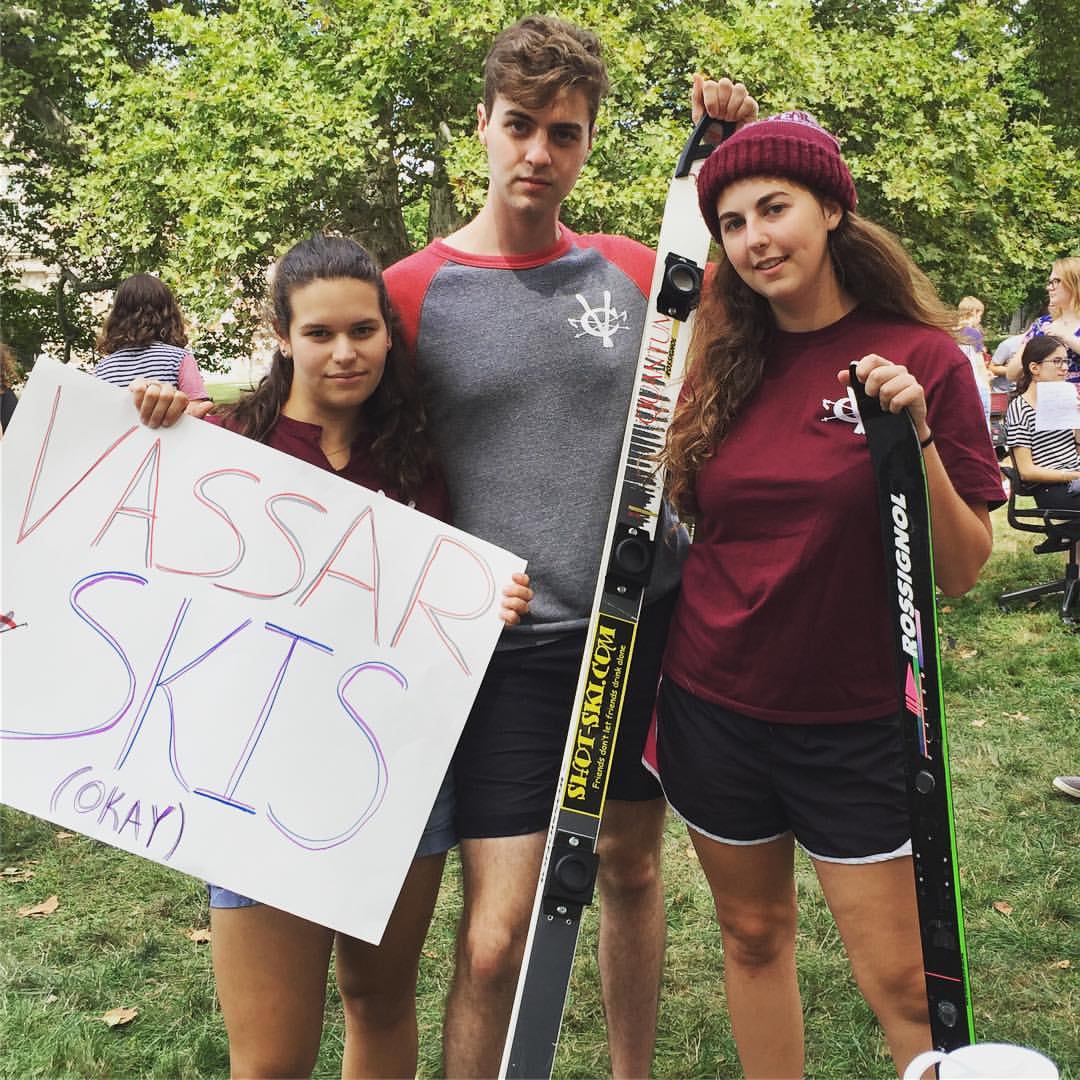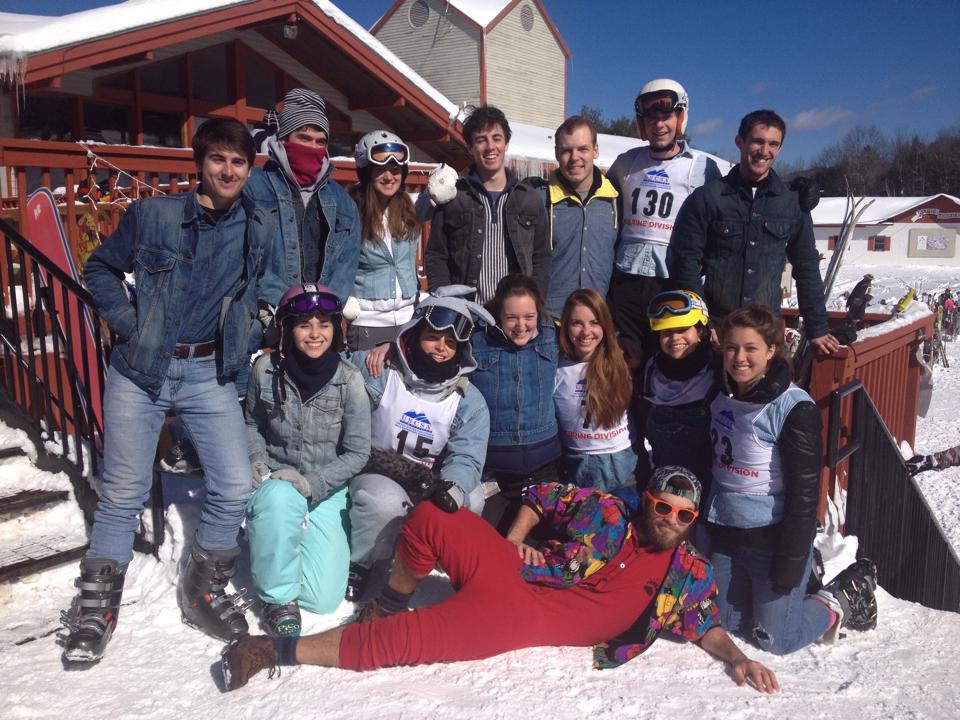- Instructor: Diane Harriford
Vassar Moodle
Resultados de la búsqueda: 84
- Instructor: Colleen Cohen
- Coordinator: Melissa Naitza

- Member: Petya Andreeva
- Member: Tobias Armborst
- Member: Ana Canino
- Member: Lisa Collins
- Member: Eve D'Ambra
- Member: Yvonne Elet
- Member: Jordan Etzel
- Member: Gordon Hall
- Member: Elizabeth Lastra
- Member: Haohao Lu
- Member: Brian Lukacher
- Member: Molly Nesbit
- Member: Laura Newman
- Member: Serena Qiu
- Member: Padma Rajendran
- Member: Gina Ruggeri
- Member: Christina Tenaglia
- Member: Timothy Thurber
- Member: Luisa Valle

- Instructor: Petya Andreeva
- Instructor: Eve D'Ambra
- Instructor: Diana DePardo-Minsky
- Instructor: Elizabeth Lastra
- Instructor: Brian Lukacher
- Instructor: Molly Nesbit
- Instructor: Jonah Rowen
- Instructor: Rachel Wise
- Instructor: Brian Lukacher
- Instructor: Molly Nesbit
- Instructor: Petya Andreeva
- Instructor: Brian Lukacher
- Instructor: Yvonne Elet
Course meets Thursdays 6:30-9:30pm Blodgett 105
- Instructor: Martha Kaplan
- Instructor: Silke von der Emde
- Instructor: Colin Aitken
- Instructor: Myra Hughey
- Instructor: Dianne Pater
- Instructor: Justin Touchon
- Instructor: Margaret Ronsheim
- Instructor: Alison Keimowitz
- Instructor: Colette Salyk
- Instructor: David Webster

- Instructor: Joshua de Leeuw
- Instructor: Stephen Rooks
- Instructor: Chelsea Acree
- Instructor: Jessie Levey
- Instructor: Leslie Sachs
- Instructor: Leslie Sachs
- Instructor: Leslie Sachs
- Instructor: Stephen Rooks
- Instructor: Stephen Rooks
- Instructor: Stephen Rooks
- Instructor: Stephen Rooks
- Instructor: Christopher Grabowski
- Instructor: Salvador Contes
- Instructor: Una Miller
- Instructor: Salvador Contes
- Instructor: Una Miller
- Instructor: Salvador Contes
- Instructor: Una Miller
- Instructor: Kimberly Williams Brown

- Instructor: Ryan Chapman
- Instructor: Joshua Harmon
- Instructor: Hiram Perez
- Instructor: Alden Marte-Wood
- Instructor: Seth Cosimini

- Instructor: Terrence Cullen
- Instructor: Kathleen Hart

- Instructor: Fabio Andrade
- Faculty: Baynard Bailey
- Faculty: Eliana Borba
- Faculty: Mary Ellen Czesak
- Faculty: Lioba Gerhardi
- Faculty: Tracey Holland
- Faculty: Candy Martinez
- Instructor: Brian Godfrey
- Instructor: Montserrat Montse Madariaga-Caro
- Instructor: Montserrat Montse Madariaga-Caro
- Instructor: Nancy Bisaha
- Instructor: Lydia Murdoch
- Instructor: Yu-chi Chang
- Instructor: Michaela Pohl
- Instructor: Robert Brigham
- Instructor: Mariam Rashid
- Instructor: Chelsea Lane
- Instructor: Chelsea Lane
- Instructor: Celeste Oram
- Instructor: Justin Patch
- Instructor: Chelsea Lane
- Instructor: Chelsea Lane
- Instructor: Thomas Sauer
- Instructor: Tina McDermott
- Instructor: Ryan Mee
- Instructor: Nku Patrick
- Instructor: Nku Patrick
- Instructor: Martin Perry
- Instructor: Martin Perry

The first question is metaphysical, and the second is epistemological. This course examines how two opposing Indian philosophical traditions address these questions: Buddhist and Nyāya philosophers. We will primarily draw from Nāgārjuna’s The Dispeller of Disputes (Vigrahavyāvartanī), Vasubandhu’s Twenty Verses (Viṃśatikā), the Three Natures Doctrine (Trisvabhāva), and Chapter 9 “Refutation of the Self” (Ātmavādapratiṣedha) from the Abhidharmakośabhāṣya, Vātsyāyana’s Nyāyabhāṣya, and Uddyotakara’s Nyāyavārttika. We will also engage with modern scholarship and explore connections to contemporary debates in Anglo-American philosophy.
On the metaphysical question, Nāgārjuna argues for the emptiness view that nothing—whether physical or mental—has intrinsic nature (svabhāva). This raises the question: Is existence possible without intrinsic nature? Vasubandhu argues that external physical entities don’t exist—everything is consciousness-only (vijñapti-mātra). The Nyāya philosophers defend robust realism, which posits that both physical and mental entities exist. On the epistemological question, Nāgārjuna argues that there is no reliable means to establish knowledge of anything. Vasubandhu is more optimistic: while ordinary perception misleads us about external objects, direct meditative insight can reveal the consciousness-only nature of reality. The Nyāya philosophers argue that we have reliable sources of knowledge (pramāṇa)—including perception, inference, verbal utterances, and analogy—to know about what there is. Through careful analysis of their arguments, we will discover how these ancient debates illuminate contemporary philosophical discussions in metaphysics and epistemology, such as epistemic circularity, external world skepticism, testimonial knowledge, and personal identity.
Upon successful completion of this course, students will be able to:
1. Reconstruct the arguments provided by both Buddhist and Nyāya philosophers in addressing these fundamental metaphysical and epistemological questions.
2. Critically evaluate their philosophical arguments through close textual analysis by identifying what is at stake for them, their premises, conclusions, and underlying assumptions.
3. Identify how the Indian debate may illuminate corresponding contemporary discussions.
- Instructor: Lee Ling Ting

- Instructor: Jamie Kelly
- Instructor: Payton Small
- Instructor: Hadley Bergstrom
- Instructor: Hadley Bergstrom

- Instructor: Stephanie Jackvony

- Instructor: Stephanie Jackvony
- Instructor: Michele Tugade
This module is developed as part of the LACOL QLAB project, which designed to explore the effectiveness of online materials in helping students review and strengthen their quantitative skills. The project is interested in improving these modules for future students, and you can help us by providing consent to have data about your engagement with these modules includes as part of a research study of these modules. To provide consent, please fill out the consent form found here. (Actual consent form needed.)
- Instructor: Ming-Wen An
- Instructor: Dan Ungurianu
Supplemental Instruction is a peer facilitated academic support program for students taking Math 121, Math 126, Math 127, and Chemistry 108, 109, 125, 244, 245. Specially trained students, known as SI leaders, who have excelled in these courses, sit in on the classes with current students taking those subjects for the first time, and then lead discussion groups outside of class time. These groups allow students to augment their understanding of course material, and to carve out time to review or supplement their learning. Students who have been part of SI report better grades in science and math, better study habits, and a greater propensity to take more advanced courses in their disciplines.
- Instructor: Kariane Calta
- Instructor: Saskia Comess
- Instructor: Hudson Gould
- Instructor: Kaitian Jin
- Instructor: Yun Young Kim
- Instructor: Gabrielle Mintz
- Instructor: Hanna Mitamura
- Instructor: Samanvaya Sharma
- Instructor: Diane Harriford
Professor: Elizabeth H. Bradley, PhD
Email: ebradley@vassar.edu
Office: Main 2nd floor, President’s Office
Office Hours: By appointment
COURSE OBJECTIVE
The objective of this course is to expose students to research methods, both quantitative and qualitative, often applied to epidemiologic, public health, and health policy and management inquiry. Students will learn to review scientific and conceptual literature critically to identify gaps or weaknesses in the literature, develop research objectives and/or testable hypotheses, and to apply and evaluate various methods for sampling, data collection and measurement, and analysis. Students will also gain practice in writing research proposals. Finally, students will experience peer review as a means of expression and gain practice absorbing input to improve research projects.
REQUIRED TEXT
Kathryn Jacobsen, Introduction to Health Research Methods, 3rd ed. New York: Jones and Barlett Learning, 2021
- Instructor: Elizabeth Bradley
VASSAR COLLEGE BREWSKIS
2017 Magic Racers!

Co-captains my captains, 2016/2017

2014 Magic Mountain Costume Race DEVILISH DIVAS IN DENIM

Some old guys...
- Captain: Theresa Law
- Instructor: Wendy Graham
- Instructor: China Sajadian
- Instructor: Nell Hawley
- Instructor: Yu Sun Chung